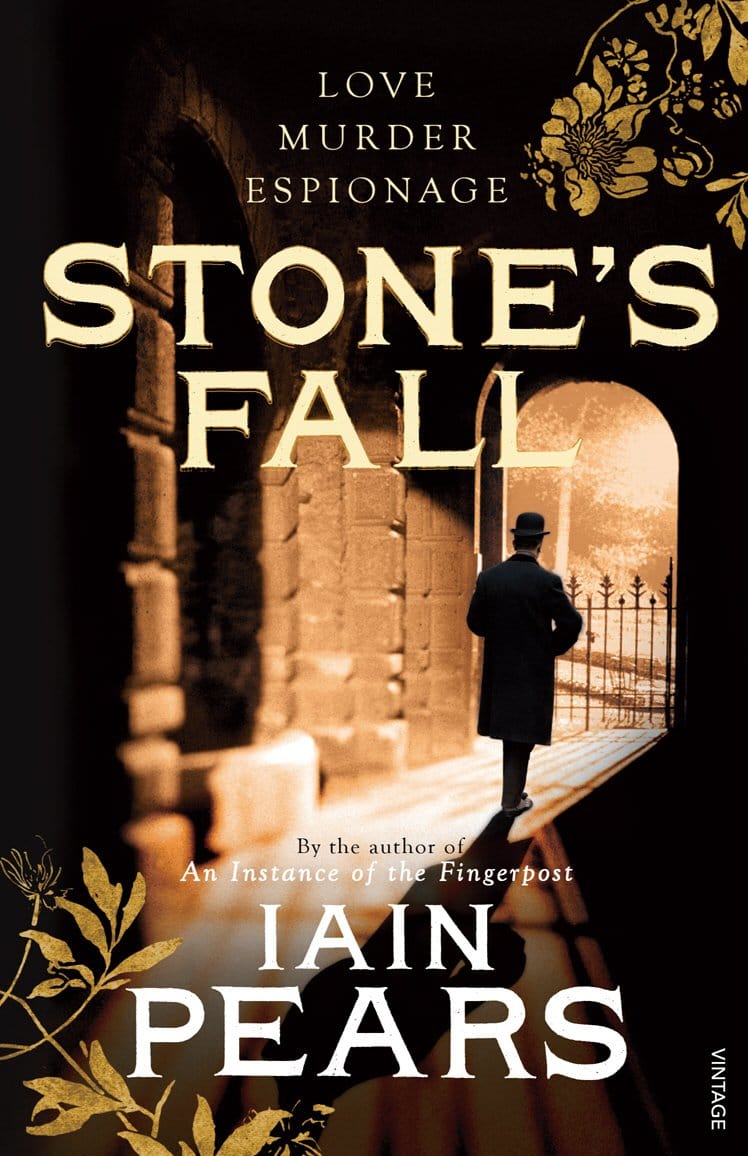Stone’s Fall - An Erudite Mystery
An intricate tome that will drop your jaw more than once

Stone’s Fall opens in 1953 Paris, where an aged British reporter is attending a drizzly funeral for a woman he hasn’t seen in many years. He is approached by a lawyer, who explains that he is the keeper of a package that was only to be bestowed the reporter upon the woman’s death, and so begins a tale of love, murder and espionage.
Written by Iain Pears, Stone’s Fall is a relatively long novel at 600 pages of small print, and it took me just over a month to read, on and off. I only mention this fact because the book’s format makes crosslinking things you learn in the first few pages with events on page 500 quite important, and at times this becomes a bit of a stretch.
The novel takes the reader back in time from 1953 to 1867 through three different perspectives. The accounts tell the story of the rise and eventual fall of John Stone; munitions magnate and industrial giant, starting at his untimely death and culminating in the formative years of his 20s.
Each part of the story is told from the perspective of a different person. To begin with, a 20-something man who has almost everything to learn about the world, and whose direction in life becomes completely swayed by any forthright woman, seductress or otherwise.
One way in which Stone’s Fall sets itself apart from other historical fictions is through its inclusion of a female lead who is far more interesting, complicated, and pivotal than any of the male characters. Elizabeth Stone (Lady Ravenscliffe), is introduced as the wife of the recently deceased John at the beginning of the book. Over 20 years his junior, what is initially assumed to be a classic gold-digging relationship expands into an abstruse story that began before Elizabeth was even born.
The first lead is Times crime reporter Matthew Braddock, who is hired by Lady Ravenscliffe to investigate the death of her husband, which until this point had been ruled unsuspicious by the police. Though Braddock is still relatively green and knows next to nothing about investigative work or the intricate workings of the financial machines that Stone sat at the helm of, it quickly becomes apparent that there is more to Stone’s death than meets the eye.
Period details are plastered throughout the novel - financiers express their outrage at the idea of income tax being raised to 5%, rent in London is £1 a week, and the comparative laxity in regulation of the financial markets in the past is laid bare. Descriptions of the state of London in the early 19th and 20th centuries is enough to make the reader glad that the days of street urchins and ubiquitous vagrancy are (mostly) behind us.
Perhaps a hundred pages before the end, I found myself wondering why Pears had even bothered inverting the order in which events were told, as it didn’t seem to add any distinctive traits, and made the story significantly harder to follow. Rest assured, I ate my words by the finale. As with all the best mysteries, when the crucial plot point finally fell into place, the reader finds themselves putting the book down and simply gawping as the revelation sinks in.









